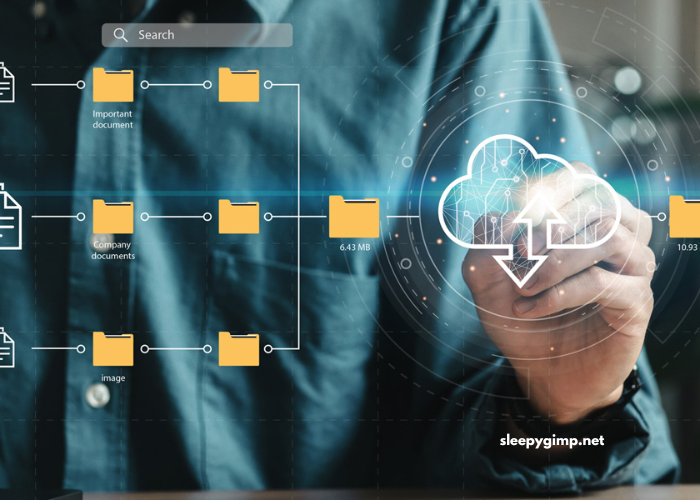As we approach the year 2025, the world of technology is evolving at an astonishing pace. With every passing year, new innovations and breakthroughs promise to reshape industries, society, and the global economy. From artificial intelligence (AI) to quantum computing, these emerging technologies are poised to disrupt traditional systems, create new opportunities, and challenge existing paradigms.
In this article, we will explore the most anticipated technology trends for 2025, focusing on how they will impact various sectors, enhance human experiences, and alter the way we live and work. Whether you’re a business leader, tech enthusiast, or simply curious about the future, understanding these trends will help you stay ahead of the curve.
The Rise of Artificial Intelligence (AI) and Machine Learning (ML)
AI’s Increasing Role in Automation
Artificial intelligence (AI) has been one of the most transformative technologies of the past decade, and its impact is only set to grow in 2025. AI is already being used to automate processes in industries such as healthcare, finance, manufacturing, and customer service. By 2025, AI will be even more integrated into daily operations, offering smarter, more efficient automation.
Machine learning (ML), a subset of AI, will also play a critical role in shaping the future. Through the ability to analyze vast amounts of data and make predictions, AI-powered ML models will allow businesses to anticipate trends, improve decision-making, and optimize operations. This will be particularly evident in sectors like supply chain management, logistics, and predictive maintenance.
AI in Healthcare: Revolutionizing Diagnostics and Treatment
One of the most exciting areas for AI in 2025 is healthcare. AI algorithms will be able to analyze medical data with unprecedented accuracy, enabling quicker diagnoses and more personalized treatments. In addition, AI will assist in drug discovery, identifying potential compounds for treatment faster than ever before. AI-driven healthcare systems will also enhance patient care, streamline administrative tasks, and reduce operational costs.
Ethical Considerations in AI
As AI becomes more ubiquitous, ethical concerns will continue to rise. Issues like bias in algorithms, data privacy, and the potential for job displacement will need to be addressed. The development of ethical AI frameworks and regulations will become increasingly important to ensure that AI is used responsibly and benefits society as a whole.
Quantum Computing: The Next Frontier
The Potential of Quantum Computing
Quantum computing is poised to revolutionize industries by solving problems that are currently beyond the capabilities of traditional computers. By harnessing the principles of quantum mechanics, quantum computers can process vast amounts of data simultaneously, making them incredibly powerful. While quantum computing is still in its infancy, major tech companies and research institutions are investing heavily in this field, and by 2025, significant progress is expected.
Quantum computers could be a game-changer in fields like cryptography, material science, and drug development. For example, quantum computers could break existing encryption methods, forcing a complete overhaul of cybersecurity protocols. They could also simulate molecular interactions with incredible precision, accelerating the development of new materials and medications.
Quantum Cryptography and Cybersecurity
With the rise of quantum computing comes the need for quantum-safe encryption methods. By 2025, we can expect the widespread adoption of quantum-resistant cryptography to secure sensitive data. Traditional encryption methods, like RSA, may no longer be secure against the computational power of quantum machines. This shift will require companies and governments to invest in new security systems to safeguard data from quantum attacks.
5G Connectivity: Enabling the Future of IoT
5G’s Role in Advancing the Internet of Things (IoT)
The rollout of 5G networks is one of the most anticipated technological advancements in recent years. By 2025, 5G will be fully deployed worldwide, and its impact on connectivity will be profound. With ultra-low latency, faster download speeds, and increased capacity, 5G will enable a new wave of innovation, particularly in the Internet of Things (IoT).
IoT devices, which include everything from smart home products to wearable health monitors, will benefit from 5G’s ability to support a massive number of connected devices. With the added speed and reliability, 5G will allow for real-time data collection and analysis, making smart cities, autonomous vehicles, and industrial IoT applications more effective.
Autonomous Vehicles and 5G
The autonomous vehicle industry is also poised to take significant steps forward with the advent of 5G. Self-driving cars require constant communication with other vehicles, infrastructure, and cloud-based systems to navigate safely. 5G’s ultra-low latency will make this communication seamless, reducing the risk of accidents and improving traffic flow. By 2025, it’s expected that 5G will be a critical enabler for the widespread adoption of autonomous vehicles.
Blockchain: Beyond Cryptocurrencies
Blockchain for Secure Data Management
Blockchain technology, best known for its use in cryptocurrencies like Bitcoin, is set to expand its applications far beyond finance. By 2025, blockchain will play a pivotal role in securing and managing data in various industries. With its decentralized, tamper-proof nature, blockchain can be used to securely store and share sensitive data, from medical records to voting systems.
In healthcare, for example, blockchain could provide a secure way to share patient data across providers while ensuring privacy and reducing the risk of data breaches. In supply chain management, blockchain can track goods from manufacturer to consumer, ensuring transparency and reducing fraud.
Smart Contracts and Decentralized Finance (DeFi)
The rise of decentralized finance (DeFi) is another area where blockchain will make a significant impact. Smart contracts, self-executing contracts with the terms of the agreement directly written into code, will revolutionize industries like real estate, law, and finance. By 2025, it’s expected that smart contracts will become more mainstream, reducing the need for intermediaries and streamlining transactions.
Extended Reality (XR): Merging the Physical and Virtual Worlds
The Growth of Virtual Reality (VR) and Augmented Reality (AR)
Extended Reality (XR), which encompasses virtual reality (VR), augmented reality (AR), and mixed reality (MR), will see explosive growth by 2025. These immersive technologies are already transforming industries like entertainment, gaming, education, and healthcare. With advancements in hardware and software, XR experiences will become more realistic, interactive, and accessible.
In the gaming industry, VR will continue to push the boundaries of immersion, allowing players to experience game worlds like never before. In education, AR and VR will revolutionize how students learn by offering interactive, hands-on experiences that are not possible with traditional textbooks. In healthcare, XR technologies will assist in surgical planning and training, providing doctors with realistic 3D models of patients’ anatomy.
The Metaverse: A Virtual Economy
One of the most exciting developments in XR is the emergence of the metaverse – a virtual world where people can interact with each other, digital environments, and assets in real-time. By 2025, the metaverse is expected to become a thriving economy, with virtual real estate, goods, and services being bought, sold, and traded.
Companies like Meta (formerly Facebook), Microsoft, and Google are already investing heavily in building the infrastructure for the metaverse. With the combination of VR, AR, and blockchain, the metaverse will offer new opportunities for remote work, social interaction, gaming, and commerce.
Biotechnology and Genomics: Advancing Human Health
Gene Editing and Personalized Medicine
By 2025, biotechnology will make significant strides in personalized medicine and gene editing. Technologies like CRISPR, which allows for precise modifications to DNA, will enable doctors to treat genetic disorders more effectively. In addition, advancements in genomics will lead to more personalized healthcare plans based on an individual’s genetic makeup.
In the realm of health, wearable devices will be able to monitor a person’s health in real-time, providing data to doctors and alerting them to potential issues before they become critical. These technologies will revolutionize how we prevent and treat diseases, offering customized, proactive healthcare solutions.
Bioprinting: Creating Tissues and Organs
Another exciting frontier in biotechnology is bioprinting, where 3D printers are used to create tissues and organs. By 2025, this technology could potentially allow for the creation of functional human tissues, and in the long term, entire organs, for transplantation. This will address the shortage of organ donors and reduce the need for lengthy waiting lists.
Conclusion: A Future Shaped by Innovation
As we approach 2025, emerging technologies are set to create a future that is vastly different from the present. Artificial intelligence, quantum computing, 5G connectivity, blockchain, extended reality, and biotechnology will shape the way we work, live, and interact. These innovations offer tremendous potential, but they also come with challenges that will need to be addressed, including ethical considerations, cybersecurity risks, and the societal impacts of automation.
In order to stay ahead in this rapidly changing world, businesses, governments, and individuals must embrace these technologies and adapt to new ways of thinking. The next few years will be a transformative period, and those who are prepared for the emerging technology trends of 2025 will be well-positioned to thrive in an increasingly digital and interconnected world.





